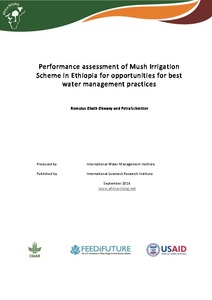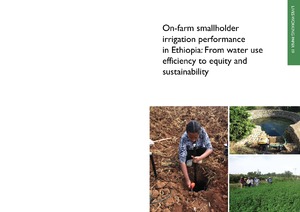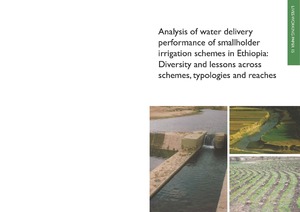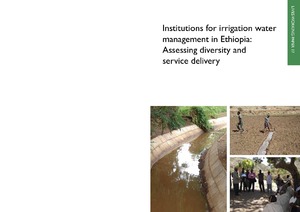Location
The International Water Management Institute (IWMI) is a non-profit, scientific research organization focusing on the sustainable use of water and land resources in developing countries. It is headquartered in Colombo, Sri Lanka, with regional offices across Asia and Africa. IWMI works in partnership with governments, civil society and the private sector to develop scalable agricultural water management solutions that have a real impact on poverty reduction, food security and ecosystem health. IWMI is a member of CGIAR, a global research partnership for a food-secure future.
IWMI’s Mission is to provide evidence-based solutions to sustainably manage water and land resources for food security, people’s livelihoods and the environment.
IWMI’s Vision, as reflected in the Strategy 2014-2018, is ‘a water-secure world’. IWMI targets water and land management challenges faced by poor communities in the developing countries, and through this contributes towards the achievement of the United Nations Millennium Development Goals (MDGs) of reducing poverty and hunger, and maintaining a sustainable environment. These are also the goals of CGIAR.
IWMI works through collaborative research with many partners in the North and South, and targets policymakers, development agencies, individual farmers and private sector organizations.
Resources
Displaying 96 - 100 of 959Performance assessment of Mush Irrigation Scheme in Ethiopia for opportunities for best water management practices
On-farm smallholder irrigation performance in Ethiopia: From water use efficiency to equity and sustainability
Analysis of water delivery performance of smallholder irrigation schemes in Ethiopia: Diversity and lessons across schemes, typologies and reaches
Irrigation systems consist of three interdependent components involving: the irrigation scheme, the on-farm management and the organizations. The irrigation scheme refers to the infrastructure for water acquisition and distribution (water delivery). This study focused on water delivery performance of 10 smallholders irrigation schemes in four regions of Ethiopia, representing diverse water sources, distribution systems, command areas (50–6000 ha) and number of beneficiary farmers (233–500 farm households) and across agro-ecologies as represented by elevation ranges (1500–2725 masl).
Institutions for irrigation water management in Ethiopia: Assessing diversity and service delivery
Irrigation systems cannot en sure the equitable distribution of water among users and sustainable operation and maintenance of the schemes without capable irrigation institutions. In Ethiopia, traditional institutions have emerged with the expansion of traditional irrigation schemes and most of them were established and operated on the initiative of the farmers. These often have very limited financial and technical capacities. Current trends show that developing infrastructure is the major concern in irrigation development efforts.









